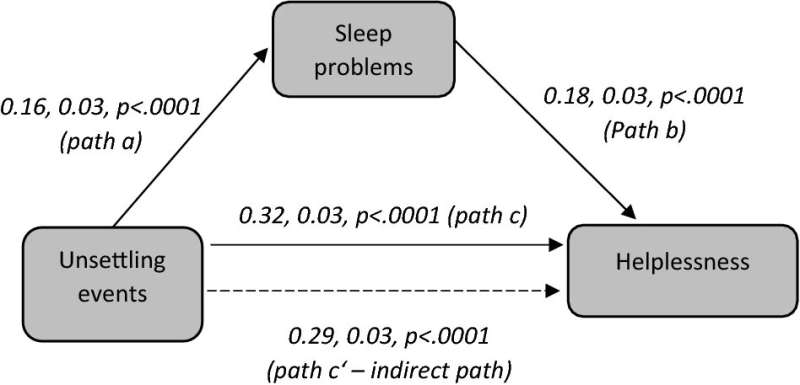This article has been reviewed according to Science X's editorial process and policies. Editors have highlighted the following attributes while ensuring the content's credibility:
fact-checked
peer-reviewed publication
proofread
COVID-19 pandemic traumatized physicians working in hospitals and private practices, says study

The COVID-19 pandemic entailed exceptional circumstances posing major challenges to the majority of people. Here, health care workers were particularly concerned. A relevant question was: Were physicians able to overcome these extreme stress situations in their professional lives? Or was their mental health afflicted?
To approach these issues Prof. Andreas Goette, cardiologist at St. Vincenz‐Krankenhaus Paderborn, Germany, and Prof. Karl-Heinz Ladwig, specialist in psychosomatic medicine at Technische Universität München (TUM), Germany, surveyed physicians during the pandemic and focused not only on those working in hospitals, but for the first time also on physicians in private practices.
How did physicians experience their own medical care during the pandemic? How did they handle extreme burdening situations? Physicians of different specializations expressed their appraisal in an anonymized online survey in autumn 2021. The study was conducted in Germany in cooperation with the academic research organization Atrial Fibrillation NETwork (AFNET) in Münster and the Medical Council of the German district Westfalen-Lippe. The results were published in April 2023.
"In the second year of the pandemic, reporting about overstressed and exhausted physicians increased. in order to investigate the problem by scientific methods. we conducted this systematic study," Prof. Goette explained.
"During data analysis we were also interested in the following questions: How do the adverse effects of the pandemic differ in physicians working in hospitals compared to those working in private practices? Is long-term professional experience helpful to cope with these stresses? Are there sex-related differences regarding the effect of the pandemic on medical care?"
A total of 1,476 physicians in North Rhine Westphalia, Germany, participated in the online survey conducted over a period of six weeks at the end of the year 2021. Items covered the physicians' life situation, the characteristics of their patients, and the threats the physicians were exposed to.
A total of 1,139 of the participants reported personal treatment experiences with COVID-19 patients. Of these, 553 physicians worked in a private practice and 586 in a hospital. They were general practitioners or specialists in internal medicine, surgery, gynecology, or pediatrics.
COVID-19 provoked profound conflicts between professional and ethical values. More than one third of the physicians, especially those working in private practices, felt restrained in their medical care by external constraints. Nearly half of the hospital physicians (48%) and more than one forth of the physicians working in private practices (27%) reported cases in which they experienced profound difficulties to maintain the dignity of their patients during the pandemic.
Of note, on the peak of the fourth wave of the pandemic, one fourth (23%) of the physicians under investigation suffered from clinical meaningful depressive symptoms and another forth (24%) from anxiety. Comparison with studies during the early phase of the pandemic suggest an increase of affective burden.
More than half of the physicians expressed feelings of helplessness (63% in hospitals and 53% in private practices). The majority complained of sleeping problems. Women and physicians with minor years of medical experience were particularly affected.
Prof. Ladwig summarized, "The results of our study reveal: The pandemic and especially the treatment of COVID-19 patients had serious consequences for medical care in hospitals and private practices. To some extent, medical care was impugned in its ethical features. The traumatizing work content did not leave physicians untouched but induced mental health distortions even in experienced doctors who are rather used to manage difficult situations."
"As we see, physicians were not able to adapt to the adverse situation in the course of the pandemic but in contrast emotional burden increased. Emotional perturbations among physicians have attained a critical magnitude."
Prof. Goette concluded, "It is depressing to see, how the mental burden of us physicians increased steadily over the pandemic. The rate of substantial psychic impact of the fourth COVID-19 wave appears really significant. The end of the pandemic will hopefully cause recovery of the findings. However, this remains to be seen and requires further research."
More information: Karl-Heinz Ladwig et al, Covid-19 pandemic induced traumatizing medical job contents and mental health distortions of physicians working in private practices and in hospitals, Scientific Reports (2023). DOI: 10.1038/s41598-023-32412-y




















